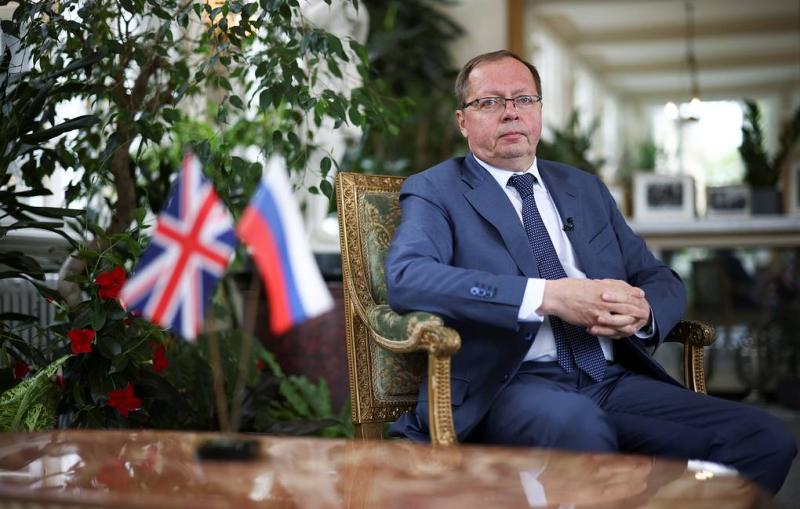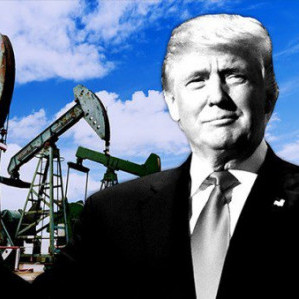
© REUTERS/Henry Nicholls/TASS
Top stories from the Russian press on Monday, December 12th, prepared by TASS
The Russian ambassador to the UK says royal family members have been recommended not to maintain communication with the embassy, the IAEA shares its vision of a potential security zone around the Zaporozhye NPP, while the EU has failed to agree on its latest package of sanctions against Moscow. These stories topped Monday’s newspaper headlines across Russia.
Izvestia: Russian envoy points to souring relations with UK
In an interview with Izvestia, Russian Ambassador to the UK Andrey Kelin said that relations between Moscow and London which have been souring since 2018, after the Srkipal case, were undoubtedly at a very low level, and London almost froze all communication, except for bilateral diplomatic contacts, after February 24. Terminating those will be the very last thing to be followed by military relations, but neither London, nor Moscow is currently interested in that, he said. And any resumption of ties will depend on how Russia’s special military operation in Ukraine will continue and on what it would lead to, according to Kelin.
Meanwhile, royal family members have been recommended neither to maintain ties with the Russian embassy, nor to contact it, the Russian envoy noted. "Diplomacy has been confined to maintaining necessary communication, supporting compatriots and making [Russia’s] position clear. Thus, the range of tasks has changed," he told Izvestia. "We have been keeping up somewhat regular communication with the British Foreign Office. We mostly discuss with British diplomats the functioning of the British Embassy in Moscow and the work of the Russian diplomatic mission here," he specified.
Kelin sees a number of reasons why Great Britain has become a major player in fomenting the conflict in Ukraine. These include phobias the UK has long had toward Russia, he said. Also, the UK believes the conflict would not affect it, because the island nation is far from Europe. "But the most important thing is that the British have been aligning their foreign policy with that of the United States who has been trying all these years to transform Ukraine into a project that would weaken Moscow," Kelin said.
According to the Russian ambassador, Britain is getting increasingly involved in this conflict. The British have assisted in training special forces for Kiev, and London had embarked on major weapons supplies to Ukraine back before February 24. Operation Orbital to train Ukrainian forces was conducted there a year prior to the special military operation, while now Ukrainian servicemen are being trained at British camps in the country’s north, west and south. According to the latest estimates, Britain has trained some 9,000 service people who are already fighting in Ukraine, Kelin concluded.
Kommersant: IAEA shares its vision of security zone around Zaporozhye plant
Last week, Director General of the International Atomic Energy Agency Rafael Grossi disclosed some details of establishing a security zone around the Zaporozhye nuclear power plant. He urged the parties to the conflict not to fire on the facility or conduct shelling from its premises, while specifying that neither a ceasefire nor demilitarization was being negotiated.
The IAEA boss called for establishing the zone as soon as possible, ideally before the end of this year, as he described the situation at the nuclear facility as "precarious, fragile and potentially dangerous." "We are doing everything we can to prevent a nuclear accident there," Grossi assured. "We are making progress in our consultations with Ukraine and Russia and I’m hopeful that the zone will be agreed upon and will materialize soon. It is urgently needed," he stressed.
Russian Deputy Foreign Minister Sergey Ryabkov shared his vision of the situation in an interview with Izvestia. There could be no compromise, if Ukraine keeps pushing for too many concessions from Russia, he warned. "Everything depends on the opposite side’s political will: if some other calculations prevail there, hinting that there could be a change from Moscow, there will be no [such zone] either before the New Year or after," he told the newspaper. The Russian diplomat explained that what worried Moscow the most was whether Kiev was capable of taking a sensible position on that. News emerged last week that Russia had told the IAEA how it sees the idea of establishing a security zone around the nuclear station, but those proposals were never made public. However, two aspects became clear - firstly, Moscow views any complete demilitarization of the power plant as unacceptable and secondly, Russian officials ruled out that the IAEA could take the nuclear facility under its control, since the agency is not authorized to do so.
Meanwhile, Kiev last week demanded that Russia be expelled from the IAEA. Ukrainian Energy Minister German Galushchenko called for revising the role of Russia in the international organization and said that the Zaporozhye facility was the heaviest loss for his country’s grid system since February 24.
In November, the majority of IAEA Board members called on Russia to abandon what it said were baseless claims of ownership of the power plant. Rosatom CEO Alexey Likhachev criticized the document as inadmissible and inadequate and said Kiev had adopted the resolution to have a carte blanche for shelling the power plant.
Vedomosti: EU stalls on ninth package of anti-Russian sanctions
The European Union has failed to adopt its ninth package of sanctions against Russia, with talks between member-countries stalled, Poland’s Ambassador to the EU Andrzej Sados announced on Saturday. The reason for the deadlock was that European members pushed for too many exemptions. Specifically, Germany, France, Spain, Italy and Belgium insisted that EU nations could be given the power to unblock the assets of sanctioned individuals on a national level. According to Polskie Radio, so far, 1,200 people are subject to the sanctions already.
However, a number of countries refused to freeze the assets of Russian agricultural companies not to strain vessels in ports handling grain. Hungary demanded that Russian government officials be excluded from the blacklist, while Sweden voted against freezing sanctions against the Federal Service for Supervision of Communications, Information Technology, and Mass Media (Roskomnadzor), Sados said. Meanwhile, talks on imposing fresh restrictions are ongoing, and EU envoys are scheduled to meet again on Monday, the Polish diplomat said.
Associate Professor with the World Economy Department at the Higher School of Economics’ Faculty of World Economy and International Affairs Alexander Zaitsev told Vedomosti that demands by a number of countries to unfreeze certain Russian assets on a national level may imply that EU members are seeking to take individual decisions regarding further sanctions. And if they are given such a privilege, Eastern European and Baltic nations could impose more severe restrictions on Russia, while Western Europe may opt for a more moderate course. According to the expert, Brussels is not intent on splitting up on that and the EU needs to stay united. Steps to unblock the assets of Russian farmers were to be expected, he said, as some European politicians realize only too well the extent of real economic ties between the EU and Russia and how food sanctions could hamper the bloc.
Vedomosti: Situation in Kosovo worsening
Tensions in the north of the self-proclaimed Kosovo republic with a predominantly Serbian population escalated on Saturday after an ethnic Serb and former Kosovo police officer, Dejan Pantic, was arrested by the Kosovo police in Jarinje for an alleged attack on a local election commission. In response, the Serbian population started to mount barricades and held protests. The EU’s diplomacy chief Josep Borrell warned on Twitter that the bloc would not tolerate any attacks on its mission in Kosovo and demanded that "barricades must be removed immediately" by Kosovo Serbs, Reuters reported.
On Saturday, Serbian President Alexander Vucic said his country would for the first time ask KFOR to deploy Serbian military and police forces in Kosovo, according to Reuters. Later, the Serbian leader assured that Belgrade would continue its fight for Kosovo and Metohija on the legal front and said Pristina should establish an association of Serb communities.
In parallel, Pristina is seeking to speed up its integration into the EU. Politico reported on Sunday that the self-proclaimed republic would soon submit its EU membership request, despite a refusal by Cyprus, Greece, Romania, Slovakia and Spain to recognize the independence of Kosovo. Vucic told Blic that Kosovo would submit its request to the EU on December 15.
Only the Kosovars could benefit from the latest tensions, as they would use this unique moment in history to try and attain full recognition of Kosovo and have the republic integrated into international organizations, Yekaterina Entina, Associate Professor of Higher School of Economics and Senior Research at the Institute of Europe at the Russian Academy of Sciences told Vedomosti. The tensions over the past 10 months are evidence that things may spiral out of control for the West, Entina warned. However, the analyst doubts a military conflict could be a victory for Serbia, especially during the Russian special military operation in Ukraine, since the Serbs would face a national disaster, if there is a war.
Another expert, Anastasia Maleshevich, said KFOR would likely reject Serbia’s request and then Belgrade could try and promote the issue at the United Nations. Serbia is interested in returning negotiations to a UN platform after the EU’s mediation failed, she added.
Izvestia: Environmental extremism engulfing Europe
Pseudo-environmental activists are becoming increasingly active in Europe. After Just Stop Oil followers attacked paintings by Van Gogh and Monet, they also spray-painted the La Scala walls and glued themselves to the runway at the Munich and Berlin airports. Public irritation at the actions by such environmental extremists has been growing, yet no measures have yet been taken in response, with the penalties reduced to a couple of months in prison.However, art critics warn masterpieces could be damaged, unless the situation is taken under control, because these sorts of stunts by green extremists could also impact people’s lives, health and well-being.
Art critic Sergey Uvarov told Izvestia these so-called environmental activists have been seeking to attract attention, so Russian museums have decided not to comment on them in public. However, museums have been adjusting to the new reality, he said, for environmental activists have been threatening to take their attacks to a higher level and damage works of art for real. He recommended governments to strengthen their laws to nip similar trends in the bud.
Psychologist Sergey Yenikolopov believes if environmental activists continue to operate with impunity, a sad future may await works of art, and people may suffer, since this is how terrorism emerges, he told Izvestia.









